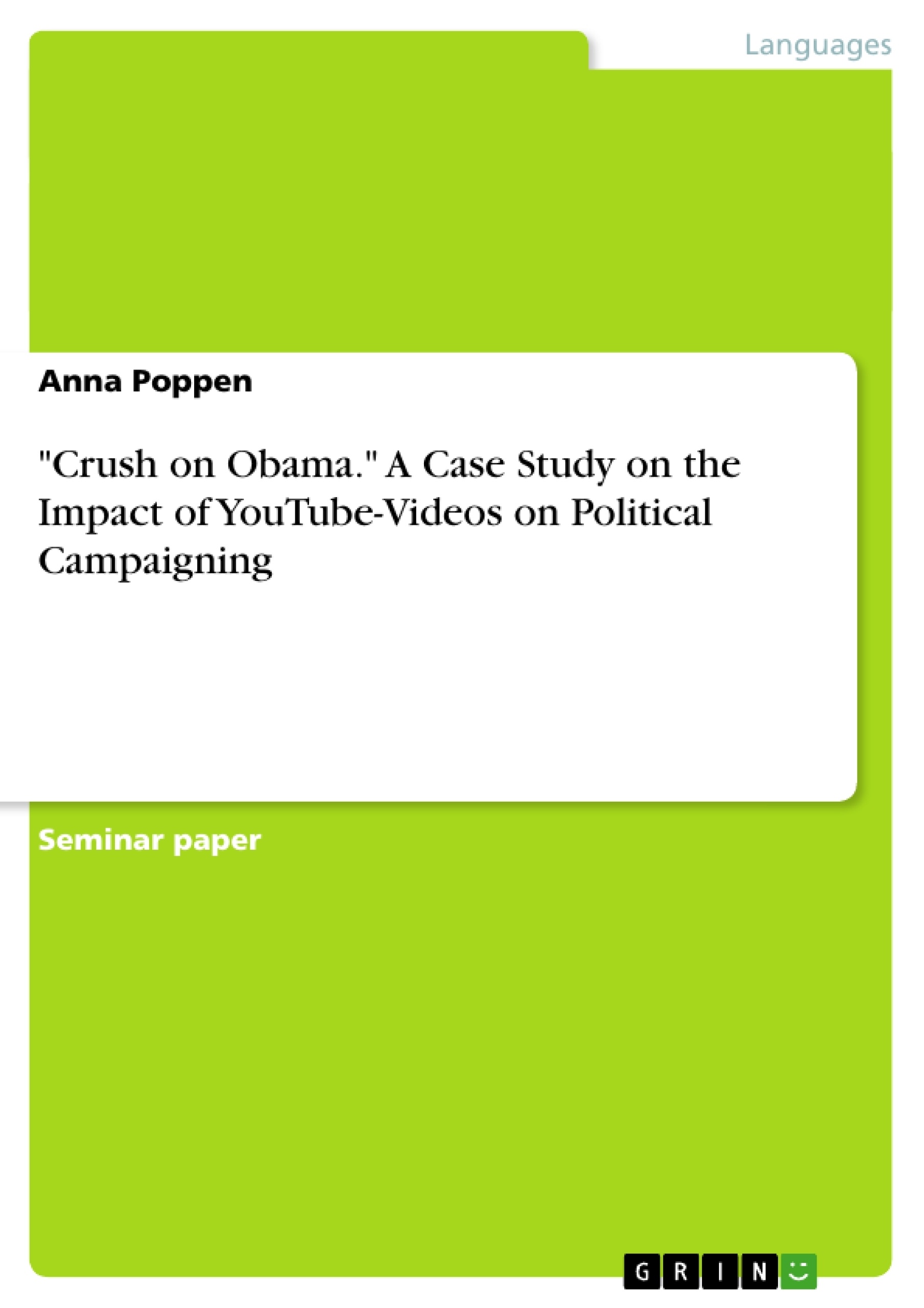The video sharing website YouTube has become a phenomenon that is part of an increasing number of people’s lives and also a part of the usual presidential rhetoric. Before the launch of YouTube in 2005, the enormous effects of this online phenomenon on all aspects of society could hardly be foreseen. In 2011, however, it is obvious that YouTube and other online media affect every day life, including political decision making, in many ways. The 2004 US presidential election is often referred to as the first internet election as the candidates (Howard Dean in particular) started to use blogs and websites to raise money and convince voters online (Zielmann, Röttger 2009: 77). By 2008, the internet had become even more diverse and complex and offered a lot of new online functions like social networking sites (Facebook) and video sharing sites (YouTube). These new opportunities were used by most of the candidates in the 2008 presidential election. The later US President Barack Obama as well as his internal opponent Hillary Clinton made use of the internet to spread their political messages and address especially the younger voters. A study that was conducted by the Pew Internet & American Life Project during the 2008 election campaign proved that 40% of all adults accessed information about politics on the internet. It also showed that “viewers of politically relevant YouTube videos ha[d] become a key part of at least some campaign events” (Rainie, Smith 2008). In 2008, the online world was not new to most people, but it was used as a major propaganda tool by most politicians and their campaign teams for the first time. In the Democratic primary elections several candidates did not announce their candidacy in the traditional press but online. On July 23, 2007, the first ever political debate took place on YouTube.
Table of Contents
1. Introduction
2. The YouTube-ification of Politics
2.1 YouTube - Development of an Online Phenomenon
2.2 YouTube’s Influence in Politics
3. Case Study
3.1 Obama Girl’s “Crush on Obama”: Amateur Cult at its Best
3.2 Official Reactions
3.3 Reactions on the YouTube Message Board
3.4 Viral Reactions
4. YouTube as a Factor of Change in Political Campaigning
5. Conclusion
6. YouTubeOlogy
7. Bibliography
8. Appendix
- Quote paper
- Anna Poppen (Author), 2011, "Crush on Obama." A Case Study on the Impact of YouTube-Videos on Political Campaigning, Munich, GRIN Verlag, https://www.hausarbeiten.de/document/274673



